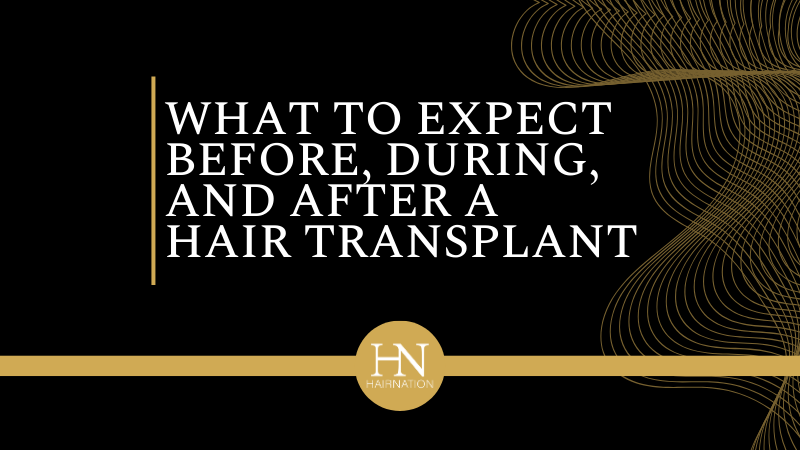- About
- Causes
- Procedures
- Treatments
- Before/Afters
- Pricing
- Transplant Financing
- FREE Consult
- Search Site

Considering a hair transplant in Vancouver? Here's what to expect before, during, and after the procedure. Before surgery, you'll have a consultation to assess your hair loss and prepare both mentally and physically. On the day of the surgery, local anesthesia ensures comfort while the surgeon transplants hair using either the FUE or FUT method. Post-surgery, mild swelling or discomfort is normal, and you'll receive detailed aftercare instructions. Recovery includes following specific guidelines to protect the treated areas, with full results typically visible within 6 to 12 months. Patience is key as hair growth gradually progresses. At HairNation in Vancouver, Calgary, and Edmonton, we provide guidance and support every step of the way to ensure successful results - call us today!
For many, deciding to get a hair transplant is a significant step towards reclaiming confidence and self-esteem. If you’re considering a hair transplant in Vancouver, you probably have questions about the process. Understanding what to expect before, during, and after the procedure can help ease any worries and prepare you for a smoother experience. At HairNation Vancouver, Calgary, and Edmonton, we aim to guide you through every stage of the process, ensuring you feel confident and well-informed.
Here’s what you can expect at each phase of your hair transplant journey.
Yes, shedding of transplanted hair (known as "shock loss") is common within the first few weeks. New hair growth will start shortly after. Call us for expert advice!
Hair loss is not something you have to accept. Effective and lasting solutions for hair loss for men and women are available. Through a comprehensive consultation, HairNation delivers accurate and insightful diagnosis and advanced hair restoration treatment strategies to guide you on your journey to complete and transformative hair restoration.
Contact us today by filling out the contact form below or by calling us at 1 (587) 952-8844. Complimentary virtual consultations are available for those inquiring about hair transplants, and for all other hair loss inquiries, complimentary in-person consultations are available.